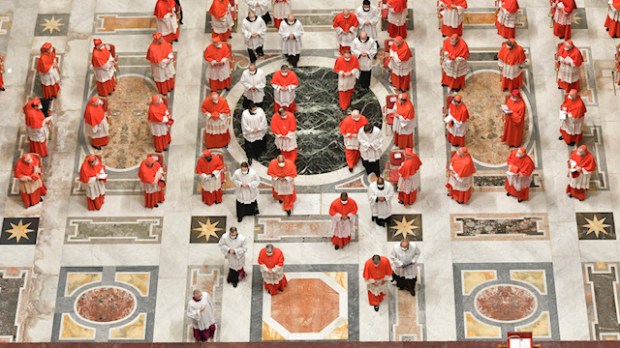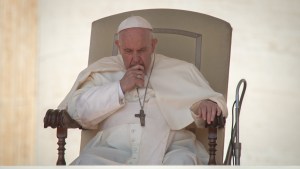Monday, August 22
1. “Schism in the Church is a real threat”
2. The shadow of war hangs over the Pope’s visit to Kazakhstan.
3. By the way, what is a consistory?
“Schism in the Church is a real threat”
Italian philosopher Massimo Borghesi, author of a biography of Pope Francis, considers the risk of schism within the Church a “real threat.” Pope Francis’ pastoral positions, especially on family ethics, have earned him a significant amount of opposition, especially among U.S. bishops, influenced by the “theo-conservatives” or “Catho-capitalists” who have been on the rise since Ronald Reagan’s presidency in the 1980s, and who had felt comfortable with Donald Trump. For these thinkers, the fight against Islam and post-modern relativism, as well as the fight against abortion, euthanasia and homosexual unions are the unavoidable focus of Catholicism, and the social commitments of Pope Francis are the mark of a form of “leftism.” In the face of these trends, which they equate with liberation theology, they mount a “culture war” that contributes to the polarization of society, and constitutes a “tragedy for North American Catholicism” and beyond, since the power of American conservative networks gives them a sounding board outside the United States. For Massimo Borghesi, the risk of schism comes much more from this phenomenon than from the German Synodal Way, whose “progressive” demands will probably be nuanced by the local bishops, capable of elaborating a realistic synthesis of the debates while avoiding any rupture with Rome.
La Razon, Spanish.
The shadow of war hangs over the Pope’s visit to Kazakhstan
With three weeks to go before Pope Francis travels to Kazakhstan, the news website Crux lays out the backdrop for this trip, during which the head of the Catholic Church could meet the Russian Orthodox Patriarch Kirill. The media outlet offers a retrospective of the context of the possible encounter, recalling the statements of the Moscow Patriarchate and the Holy See since the beginning of the Russian invasion in Ukraine.
Notably, it mentions the famous comment of the Pope stating to the Italian newspaper Il Corriere della Sera that “the patriarch cannot turn himself into Putin’s altar boy.” This reminder provoked a critical response from the Moscow Patriarchate. But, the pontiff also said a few weeks later, “It is evident that his position is conditioned by his homeland in some way; which is not to say that he is an indecent man. No; God knows each person’s moral responsibilities in the depth of their hearts.” Cardinal Kurt Koch, president of the dicastery for the promotion of Christian unity, was more openly critical of the Russian patriarch. Nevertheless, Crux points out, the Congress of World and Traditional Religions in Nursultan, in which the two men are to participate, “could prove timely.” Organized every three years by the Kazakh government, it aims to promote dialogue between religions.
Crux, English.
By the way, what is a consistory?
The coming days will be intense at the Vatican, where Pope Francis has decided to gather all the cardinals of the world to reflect together on the new constitution of the Holy See, on August 29 and 30. He will have just created 21 new cardinals during a consistory on Saturday 27. The Spanish media outlet Omnes gives the basic elements for understanding the principles of a consistory, “a formal meeting of the college of cardinals.” It reminds us that this college is formed of all the cardinals, and has the dual function of electing the pope during a conclave and advising him on the government of the Church or any other matter that the pope deems appropriate.
There are three types of consistory: ordinary, extraordinary, and semi-public. “An ordinary or secret (consistory) is so called because no one other than the pope and the cardinals may be present at its deliberations.” An extraordinary consistory is convoked when required by special needs of the Church or by the gravity of the matters to be dealt with. Such a consistory is public in the sense that persons outside the College of Cardinals may be invited. Finally, a semi-public consistory is so called because, in addition to cardinals, some bishops are included.
Omnes, Spanish


